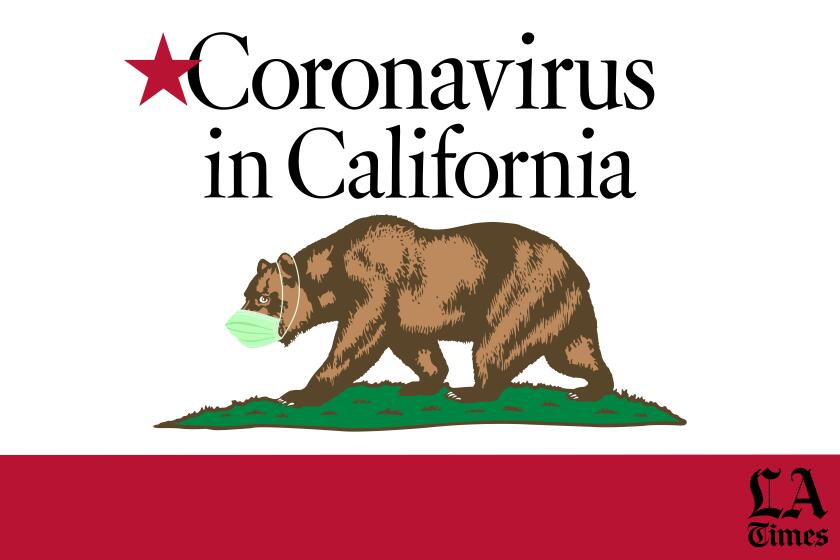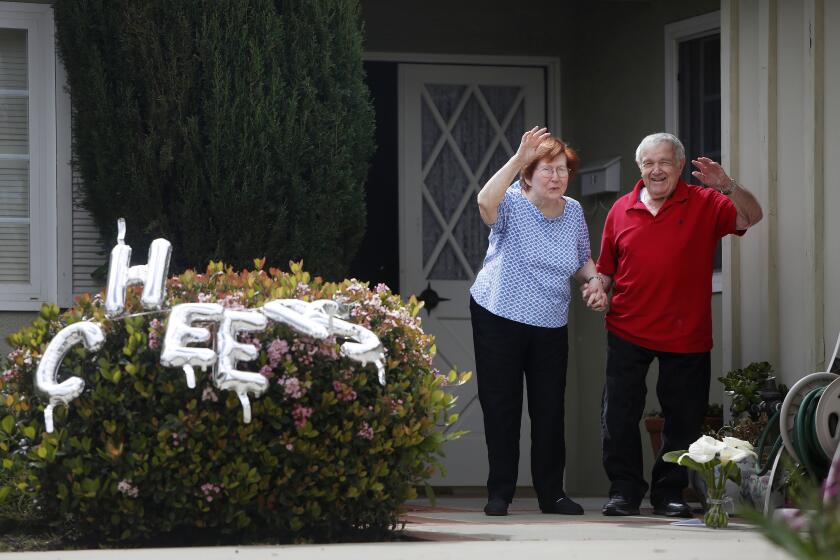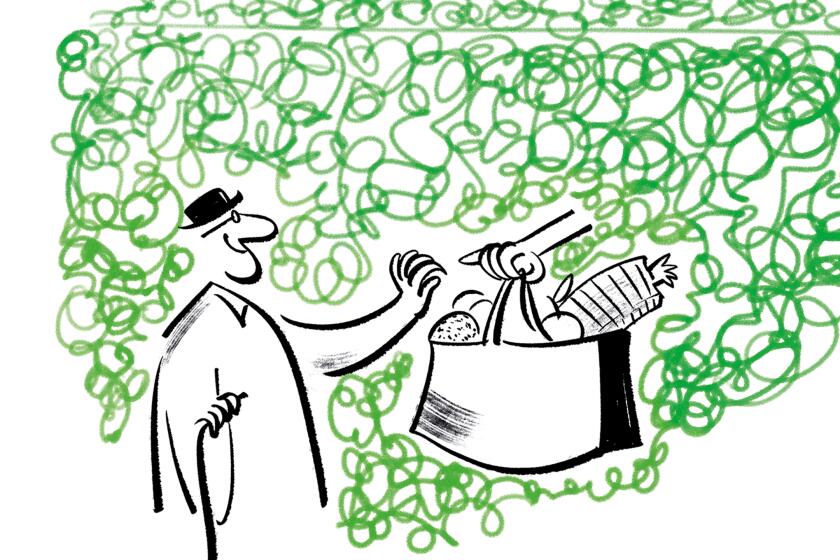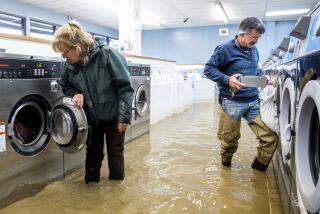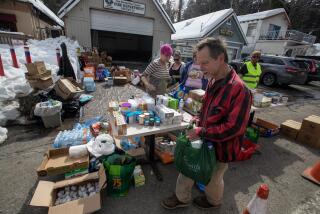As coronavirus crisis grows, there’s been no shortage of helpers
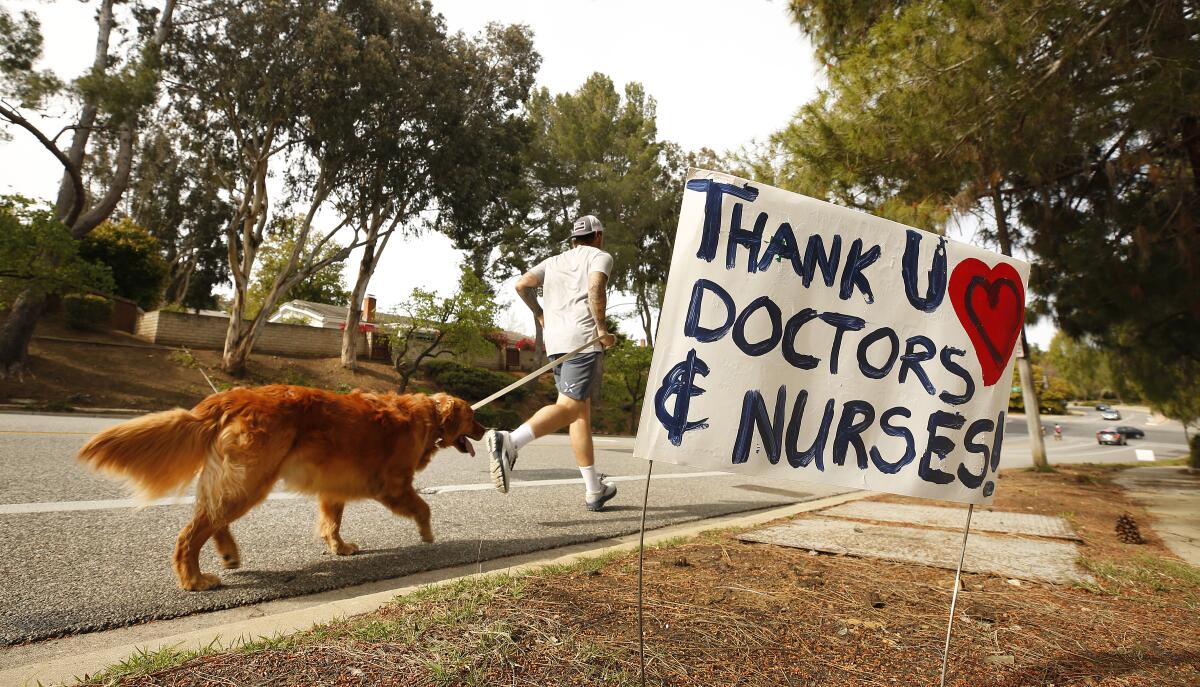
When HeathCliff Rothman awoke with a low-grade fever and a tightening in his chest, he feared the worst.
The Los Feliz resident figured he could handle the isolation and income he expected to lose as the coronavirus crisis grew day by day. But the possibility that he — a man over 65 whom health officials had deemed one of the most vulnerable — had contracted the virus felt debilitating.
Fearful for what may come, he posted a casual plea on the messaging site NextDoor: He was under the weather and wondered whether anyone going to the grocery store could get him some supplies?
When he received a message from one neighbor asking for his shopping list and opened his door a couple of days later to find a basket of goods and a note of encouragement from another neighbor, he was overwhelmed.
“I thought about the people my age who grew up watching 1930s Frank Capra movies about World War II small-town America — their ‘Aww shucks, folks’ healing attitude. It seems impossibly dated and sentimental, but I experienced a Frank Capra world this week,” Rothman said.
Rothman says he is usually the one offering to help others, and asking for it doesn’t come naturally. Before he tested negative for COVID-19 after becoming ill two weeks ago, it was strangers who lent him hope.
“I saw how much harder it is to be in a vulnerable position and ask for help, relative to helping others. You wouldn’t expect it,” he said.
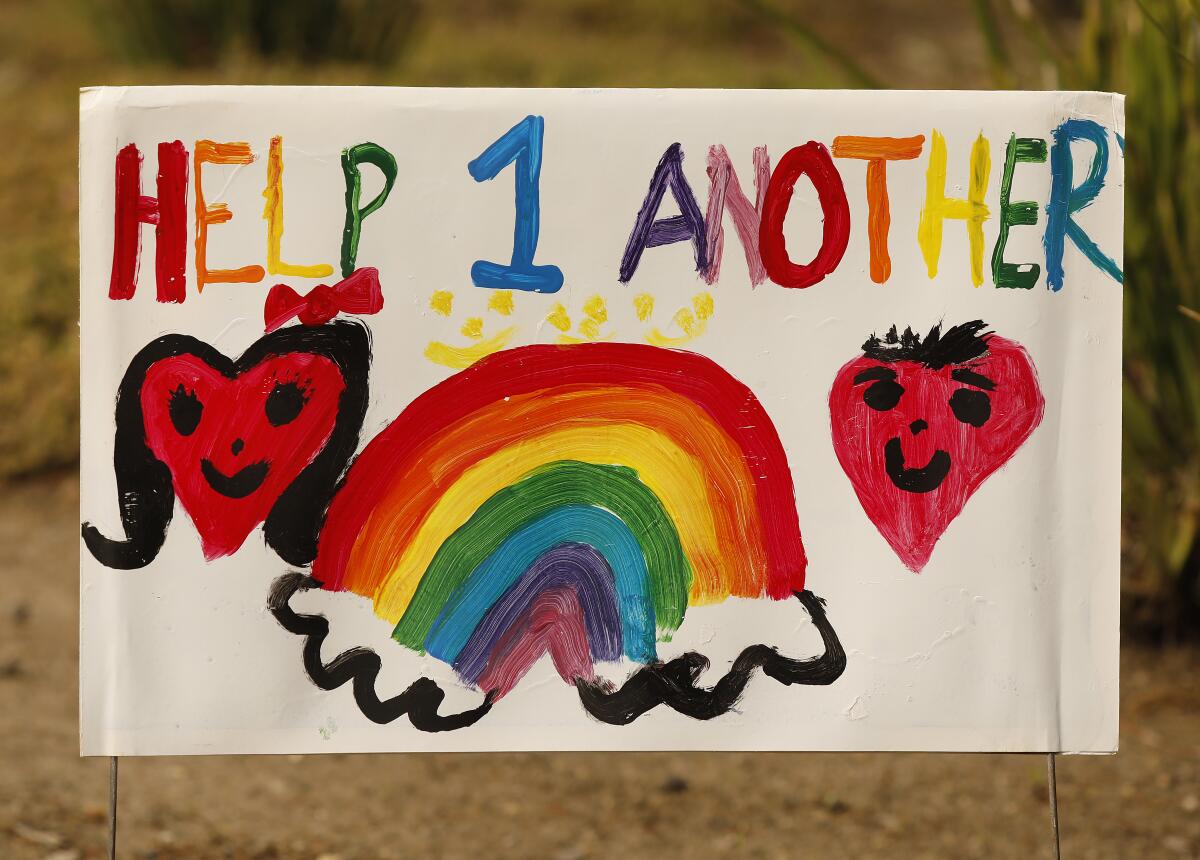
Tay Bittner, 28, didn’t hesitate when she saw Rothman’s message on NextDoor. She’d been looking for ways to help around her East Hollywood neighborhood, especially assisting those who are older and may be more at risk of contracting the virus. She knew that those most in need may be the most wary of asking for help.
She texted Rothman photos of groceries, asking if he’d be comfortable with an alternative when his choice of produce was absent.
Rothman said he was so moved by the level of compassion a stranger had shown him that he sobbed.
“Sadly, we needed a shared crisis to show us who we are,” he said.
From the Los Angeles Times: Coronavirus in California: Stories From the Front Line is a daily 15-minute podcast hosted by reporter Gustavo Arellano.
As the case count of those infected by the coronavirus grows and shelter-in-place orders ensure a socially distant society, fear has become palpable throughout California. But also evident is a side of humanity often exposed during times of duress.
Banners thanking first responders and healthcare workers have appeared in windows and on the sides of roads. Sidewalk chalk art from children and parents encourages passersby to “stay safe.” Well-wishers serenaded a 97-year-old on her birthday from outside her window. A neighbor left an anonymous toilet paper delivery at the house next door. A healthcare worker was given a cake to say thanks.
Harry Polakow was surprised when he heard a knock on his front door.
Bright spots are emerging amid a deluge of viral updates, often outlining the rampage of the virus. Neighborhoods are organizing phone trees and creating spreadsheets to match those who need help with those willing to lend a hand.
And the volunteers are plentiful, even if the helpers are also in need. Community organizers have received a barrage of offers, often from those whose own livelihoods have been upended by the coronavirus pandemic, including many who have lost jobs.
“I am concerned about making rent, but I also have a car and am healthy and can deliver,” one person wrote in offering to volunteer with Ground Game L.A., a community organization group.
“I just lost my job but have time to volunteer,” wrote another.
The group sprang into action in early March after a team member — a former combat medic in Iraq — warned of the steady rise in coronavirus cases. The group launched a mutual aid network to match people in need with those who could assist, putting efforts to help directly in the hands of the community instead of relying on officials for support.
Priority has been given to those who are immunocompromised, socially isolated or don’t have a community or family to depend on. Needs have included grocery or pharmaceutical runs and dog walks, financial help and emotional support.
The offers to help have been nonstop, said Kendall Mayhew, who co-founded the community group.
“It’s really heartening,” she said.
Los Feliz resident Daisy O’Dell saw a similar trend when she and others posted fliers throughout Los Angeles encouraging at-risk Angelenos to get in touch.
The majority of people who emailed her volunteered their time instead, saying they could deliver items to those who need assistance.
“The urgency of this compassion is really breathtaking,” O’Dell said.
Social and physical distancing have restricted normal gatherings. But here are a few workarounds.
In Berkeley, Andrew Kornblatt said his neighbors have been joining in weekly morale-boosting singalongs. They have collected N95 masks used for protection during wildfires and sent them to healthcare workers. And so much of the community has rallied to volunteer its time, he was turned away from a local food bank inundated with helpful offers.
The response is a high point among humanity, said Kornblatt, 37. He hopes the commitment continues.
“We’re not at the peak of what’s coming, so it may be that because of the fact that people are willing to help now, we’ll be better equipped when times do get worse,” Kornblatt said.
Lending a helping hand may sound difficult during times where we are told to practice social distancing. Here’s how to do it.
Pete White, executive director of Los Angeles Community Action Network, said that in more than two decades of working on downtown’s skid row, he’s never witnessed such massive displays of altruism.
White, 50, worked with a team of USC students to develop hand-washing stations that have been deployed throughout the city to assist the homeless.
His biggest concern was how the sinks would be safely refilled with soap and water. To his relief, he was assured by members of various communities, from skid row to Koreatown, that they would keep watch and take action.
“I know we haven’t seen the worst of what’s coming. But I have seen the best in people,” White said.
More to Read
Sign up for Essential California
The most important California stories and recommendations in your inbox every morning.
You may occasionally receive promotional content from the Los Angeles Times.
